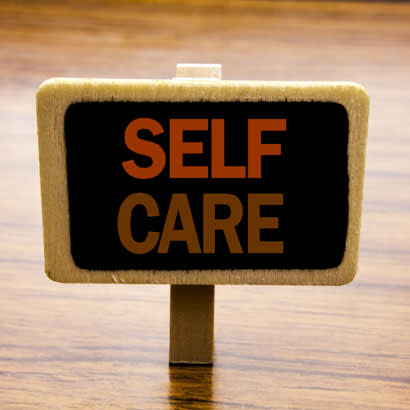
During these unprecedented times – when worry is high and staff morale can be low – it’s important to take care of ourselves and our teams. We’ve seen the amazing ways park and recreation professionals are jumping in to take care of your communities by serving meals, opening your restrooms and locker rooms to homeless members of the community, and making the tough decisions to close portions of your parks and playgrounds to keep neighbors safe. All of this, coupled with the challenge of being physically distanced from friends, family members and colleagues and coping with the stress of the COVID-19 pandemic, can take a toll on morale.
But like so many of us who are taking time to virtually connect with friends, we see you doing the same by chatting through NRPA’s online networking portal, NRPA Connect. Recently, a big topic of conversation is ways to boost staff morale and what you’re doing to stay grounded during this pandemic. Here’s what we heard:
Keep routines
Staying as close to your normal routine as possible is a great way to navigate each day. For Fort Payne Parks and Recreation in Alabama, this means keeping to the regular daily schedule, even with no visitors in facilities. Plus, for a little levity, agency leaders are hosting fun contests during the day and hosting pizza parties for departments.
Take a laugh break
Staff at Moberly Parks and Recreation in Missouri have been watching an episode of the TV show “Parks and Recreation” during lunch breaks. Taking the time to find some humor in each day is a great way to keep morale high. The staff has also been ordering lunch in from their favorite local restaurants – a great way to support local businesses!
Communicate
Often, the root of uncertainty and worry is a lack of communication. Cleveland Metroparks in Ohio and Seattle Parks and Recreation in Washington have addressed this by hosting conference calls with department heads to update team leads on leadership decisions, answer questions and hear feedback. In Cleveland, the agency’s CEO also created a YouTube video to address the whole park district, and Seattle’s superintendent hosts virtual Q&A sessions – both great ways to keep staff engaged and reassured.
Check-in regularly
Even if your staff is working remotely, remain consistent in your check-ins. Seattle staff host virtual coffee breaks to check-in and chat, while Tualatin Hills Park and Recreation District in Oregon is hosting daily contests to keep staff engaged. Chicago Park District has started to conduct “well-being checks” – they set up a phone tree and take time to simply ask how the staff is managing and if they have everything they need. Even a quick phone call is appreciated to let staff know they’re doing a great job or to offer assistance if needed.
Empower staff to use their creativity
We’ve seen virtual programming gaining popularity across the field over the last several weeks. This provides a great opportunity for professionals of all kinds to share their knowledge and skills with a new audience and helps staff maintain a sense of purpose.
Encouraging staff to take care of themselves outside of work hours is also key. Taking time to recharge and unwind is an important part of staying healthy and positive during this time. Some ideas to share with your teams (and yourself!) include:
- Limit the amount of time you watch/listen to the news. It can be draining to hear the worrisome news for hours on end. Try filling time you would normally watch TV with a new podcast, a book or listening to music.
- Get crafty. Doing arts and crafts is a great way to decompress and to brighten up your home or create gifts for others to brighten their day! Crafting is an ageless activity and is a great family activity.
- Spend time outside. Physical distancing doesn’t have to mean staying inside. Practice safe distancing and take a nature walk, go for a bike ride, try a scavenger hunt or have a picnic outside.
- Garden. Spring is the perfect time to start a home garden and help reduce your trips to the grocery store. Check out NRPA’s home gardening curriculum for tips on starting a garden, picking your own fruits and veggies, and preserving your harvest.
While some of these activities are lighthearted and fun, we do recognize that responding to COVID-19 can take an emotional toll. There are things you can do to reduce secondary traumatic stress (STS) reactions for you and your staff:
- Acknowledge that STS can impact anyone helping families after a traumatic event
- Learn the symptoms, including physical (fatigue, illness) and mental (fear, withdrawal, guilt)
- Allow time for you and your family to recover
- Create a menu of personal self-care activities that you enjoy
- Practice mindfulness to help manage stress and anxiety during COVID-19
- Take a break from media coverage of COVID-19
- Ask for help if you feel overwhelmed or concerned that COVID-19 is affecting your ability to care for your family and patients
- Share the facts about COVID-19 and understanding the actual risk to yourself and people you care about can make an outbreak less stressful - when you share accurate information about COVID-19 you can help make people feel less stressed
- Prioritize taking care of your emotional health and learn more tips for taking care of yourself during emergency response
For more information about NRPA’s response to COVID-19, as well as available resources for park and recreation professionals, please see our Coronavirus Disease 2019 (COVID-19) webpage.
Lauren Kiefert is an NRPA Program Specialist and Maureen Acquino is an NRPA Program Manager.


